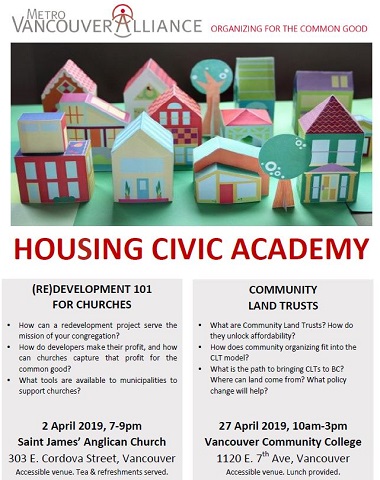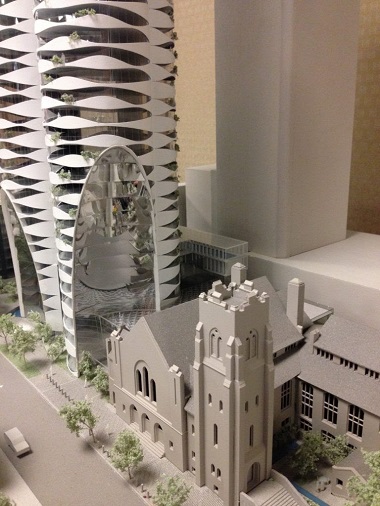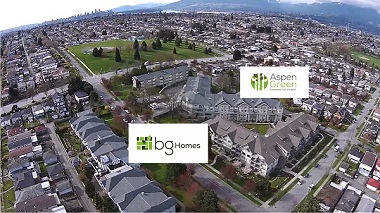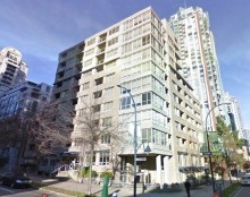 Metro Vancouver Alliance (MVA) has done a good job of linking faith groups with other broad-based organizations to address social issues in our community.
Metro Vancouver Alliance (MVA) has done a good job of linking faith groups with other broad-based organizations to address social issues in our community.
Housing has always been one of their main priorities, and now they are hosting a ‘Housing Civic Academy’ on (Re)Development 101 for Churches, next Tuesday evening (April 2), at St. James Anglican Church.
This is what they are offering:
Most faith leaders are not housing development experts, yet many congregations own valuable, underdeveloped property that allows them to consider new possibilities for the future of their organization. Come participate in a power analysis of development in the region.
We will examine the tools used by developers, municipalities, and non-profit partners to deliver housing. We will look at where landowning churches fit into this picture, and we will strategize about development plans that can help you make decisions on your own terms and live out your values as a faith organization.
MVA Housing Project Organizer Audrey Guay said:
Our evening will include a presentation by Paul Finch from BCGEU, former MVA board member, theology enthusiast and real estate expert. He will share some little-known development secrets with us because he is passionate about helping churches make development decisions that puts their values, mission and the common good at the centre.
The workshop is intended as “a space for faith leaders to share their values, goals and expertise on housing development.” Everyone is invited, but registration is required. Go here, or contact the organizers at [email protected] if you have questions.
A second workshop on Community Land Trusts will take place April 27.
Houses of the Holy

The redevelopment of First Baptist Church is now under way.
While it is true that “most faith leaders are not housing development experts,” it is also true that a good number of churches have gained considerable expertise.
Dan Fumano and Douglas Todd wrote a good article on that very point March 23 in the Vancouver Sun: Houses of the Holy: in Vancouver, a union of church and real estate.
They wrote:
The city of Vancouver’s places of worship, which sit upon more than $3.4 billion of real estate, are getting into the housing game more than ever before, scaling projects skywards in an attempt to benefit both their congregations and a community facing a housing crisis.
Religious groups have long provided housing. In past generations, those efforts focused on helping vulnerable populations with shelter beds for the homeless, refuges for women and children fleeing abuse, and housing for low-income seniors. But the role of Metro Vancouver’s religious groups in the housing world is changing. . . .
But in recent years, as Vancouver land prices have soared, the scale of these projects has increased dramatically along with the range of households they seek to serve. Religious groups are tapping into their equity, unlocking value from both the earth beneath their feet and the sky above their heads.
The B.C. arm of the United Church of Canada is developing 500 units of rental housing spread over five sites in some of the province’s most expensive municipalities.
First Baptist Church is venturing into a grand project with private developer Westbank that includes, alongside public amenities, a 57-storey high-end condo tower designed by the late Bing Thom, one of Canada’s most famous architects. . . .
They discussed some of the challenges and opportunities for faith-based groups in providing housing with Jonathan Bird, who is now working as church engagement specialist for Union Gospel Mission, but is also a past member of Metro Vancouver’s steering committee on homelessness and has organized three major housing conferences for the Christian community.
He reflected on his experience of consulting with several churches who were looking at housing plans:
“They’re deciding: ‘What do we do? Do we redevelop? . . . Is this a developer we can trust? Is that the name we want to be associated with?’ All of those are important questions, and it’s often not a straightforward answer to them,” said Bird. “Without naming names, I’ve had some qualms about projects in the last 10 or 15 years where I think: ‘Gee, that looks to me like it’s primarily a business decision, not a mission decision.’ For a Christian organization, or really any faith-based organization, I think the mission comes first.”
If an organization can subsidize affordable homes – such as for seniors or low-income families – that provides a clear benefit for the community. But with the realities of Vancouver’s housing market, with a near-zero rental vacancy rate putting pressure on all kinds of families and not only the most vulnerable, even the addition of new apartments at market rents can be helpful, said Bird.
For the full article go here.
Not a new thing

Aspen Green is the most recent of five residences that are part of BG Homes, just east of Rupert between 4th and 5th Avenue.
Christian ministries have a long history of providing housing in Metro Vancouver. Here are a few of many examples:
* More Than a Roof “has a 30 plus year history of developing inclusive communities that offer affordable housing for families, seniors, and individuals with low to moderate incomes, those suffering with mental health issues, and people working to recover from addiction. . . . [It] provides housing to over 1,700 tenants across 12 housing communities throughout Metro Vancouver, Victoria and Prince George. . . .”
* Baptist Housing: “Our first senior living community was built in the Killarney area of Vancouver in 1964. . . . We have 17 senior living communities throughout British Columbia. With hundreds of suites ranging over three levels of care, we serve over 2,100 residents . . .”
* BG Homes is a not-for-profit organization, active since 1951, affiliated with the Canadian Baptists of Western Canada. The residences are The Cedars, Beechwood, Charles Bentall, Rupert and Aspen Green, all clustered together in northeast Vancouver.
Co:Here Housing completed “a four-storey affordable housing building with 26 self-contained units: 18 studios, 4 one bedroom and 4 two bedroom units, large indoor and outdoor community engagement spaces” last year, on their parking lot.

The Wellspring is one of three buildings operated by the 127 Society for Housing, initiated by Christ Church Cathedral.
Some other groups providing housing are:
* 127 Society for Housing
* Elim Village
* Fair Haven Homes
* Broadway Manor
For short-term housing, the last three especially for refugees:
* Belkin House (just one of many Salvation Army shelters)
* Union Gospel Mission
* Journey Home
* Kinbrace
* New Hope
There are many more.

I really appreciate your work Flyn. From a missional perspective this article points to the value of collaborative education for the sake of missional sustainability.
All referred housing initiatives are good expressions of our Christian call to hospitality, particularly in this housing crisis. I am deeply inspired by individuals and churches in our city that are responding justly and missionally to the housing crisis.
I know of gracious landlords who are resisting the temptations of reno-victions or short-term rentals. I know home owners selling homes at prices that do not contribute to the current speculation trends. I know single-income renters who make room in their homes for people without a home. And, the churches in your article are being good news to this housing crisis by providing social and affordable housing.
Learning collaboratively on re-development seems like a good way to “sit down and estimate the cost” (Luke 14:25-34) before we build and welcome. Education contributes to sustainability in mission. I really hope that many leaders will make time to attend this MVA workshop to share values and wisdom around re-development for the sake of Christ’s mission in our city.